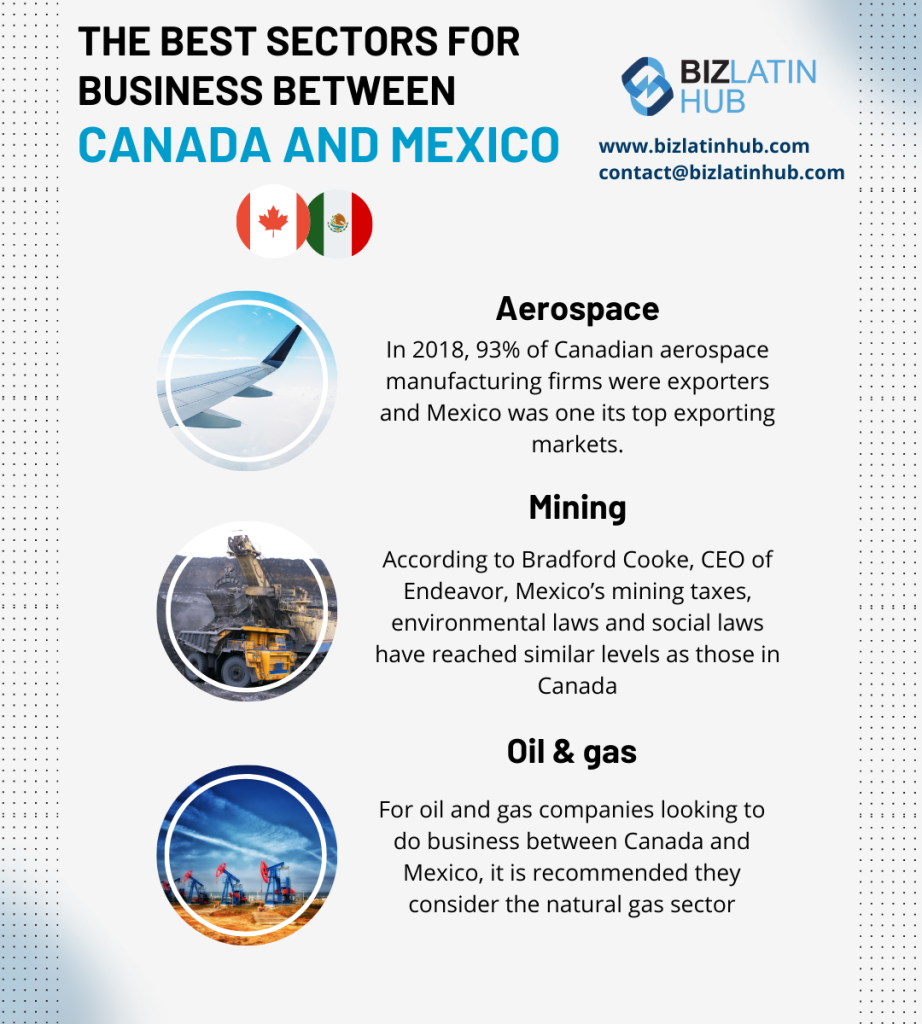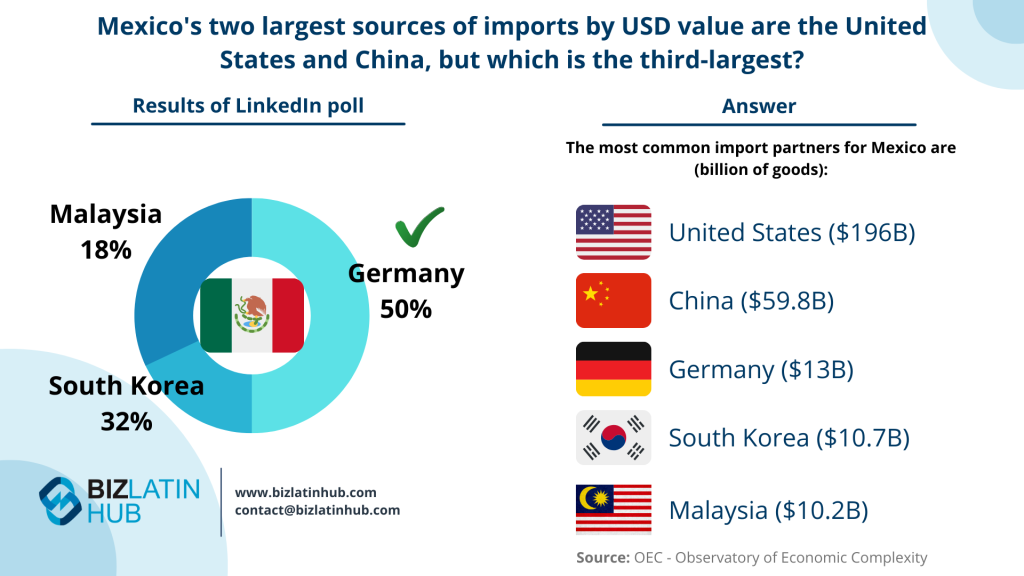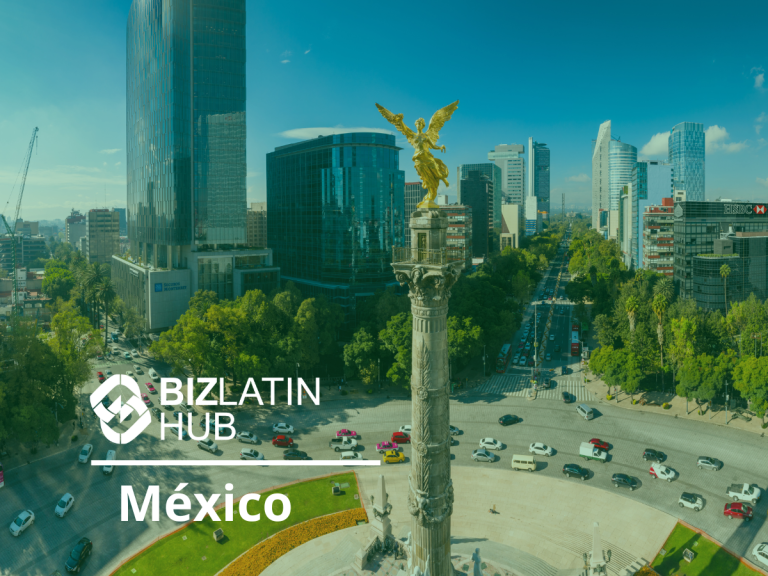For investors interested in business formation in Mexico, the commercial opportunities on offer are plentiful. While the COVID-19 pandemic caused significant disruption to Latin America’s second-largest economy, it was expected to recover to pre-pandemic levels by early 2021 and it began its recovery process in 2020, with GDP returning to pre-pandemic levels as of late 2022.

That meant a return to the growth and opportunities previously on display in one of the most popular destinations for investment in the region. Yet for investors seeking to move sooner rather than later, a number of business opportunities in Mexico can be found right now.
Mexico saw exponential growth in gross domestic product (GDP) between 1986 and 2022, only registering annual reductions in four of those 36 years, with GDP reaching $1.47 trillion by the end of that period (all figures in USD). That was matched by a corresponding rise in gross national income (GNI) — a key marker of general prosperity — which hit $10,820 per capita in 2022, placing the country as an upper-middle income nation by international standards.
Mexico is one of the most popular destinations for foreign direct investment (FDI) in Latin America, witnessing $38 billion of FDI inflow in 2022. The country’s status as a prime investment destination is bolstered by its geographic position, being the gateway between Latin America and the major economies of the United States and Canada, with the former being the prime destination for Mexico’s goods.
Among Mexico’s key exports are petroleum oil, vehicles, electrical machinery, and fresh produce, with 76% of Mexican exports heading to the United States. Other important destinations include Canada, China, Germany, Japan, and Taiwan.
If you are looking to expand into this lucrative market, read on to learn about four business opportunities in Mexico to be found right now. Or go ahead and contact us to discuss your commercial options.
4 business opportunities in Mexico ready for investment now
1. Financial technology (fintech)
Fintech is growing at an impressive pace in much of Latin America, and Mexico is no exception. The region has seen a number of significant deals struck between fintech providers and major banks, while investors have shown an increasing interest in the sector as fintech becomes more widely used and an increasingly significant element of financial systems. In recent years, Konfìo, a Mexican fintech that provides loans to small- and medium-enterprises (SMEs) has raised $143 million in funding and opened a $64 million credit line with IDB Invest.
While Mexico’s 2018 Financial Technology Institutions Law (PDF download) was widely referred to as the ‘fintech law’, it only covered electronic payment institutions and crowdfunding platforms, without affecting the likes of balance sheet lending or other financial and investment services.
In addition, Mexico boasts a wealth of tech talent, with Guadalajara the epicenter of the country’s tech ecosystem. Given the close ties with the United States, as well as the increasing numbers of Mexicans who are have some sort of banking and are engaged in the financial system — thanks in part to fintech innovations — the country’s financial technology sector presents a wide variety of business opportunities to investors.
2. Medical cannabis
Investors are increasingly waking up to the medical cannabis sector as a major source of business opportunities in Mexico, with public acceptance of marijuana as a medicinal product continuing to grow. That has seen increasing interest in Mexico’s therapeutic cannabis sector, which grew 27.7% in 2018 alone to reach a market value of $47.3 million which has since continued to increase exponentially, reaching $96.4 million in 2022.
The General Law on Health Legislation and the Federal Penal Code dictates that medicinal cannabis is legal in Mexico if it contains less than 1% THC — the active ingredient that causes a psychotropic effect. However, there is widespread expectation that Mexico’s attitude to the plant will relax even further in the future and recreational use will be allowed, with a recent Supreme Court ruling dictating that complete prohibition on drug consumption is unconstitutional.
With an ideal climate and swathes of available agricultural land, Mexico promises to be a major source of legitimate cannabis in the coming future, and investors would do well to enter the market at this still relatively early stage.

3. E-commerce
With a population of close to 129 million people, and an increasing number of them making virtual purchases even before the global pandemic forced people further online, Mexico boasts the 17th largest market for e-commerce globally. In 2020, the sector generated revenues of $19 billion due to a 32% increase that year in the face of the pandemic, with that figure exceeding revenues generated in many European countries and, in 2022, that figure reached $38 billion.
After years of growth, Mexico’s Internet penetration hit 71.1% in 2022, an impressive figure that had experienced significant growth during the COVID-19 pandemic, but which still means that a significant proportion of the country remains offline. As such, the sector still has significant room for growth in the future.
What is more, being so close to the United States, where internet penetration is more than 87% and average consumers tend to have more disposable capital, there are significant business opportunities in cross-border e-commerce for companies based in Mexico.
4. Tourism
While tourism may not have seemed like one of the prime business opportunities in Mexico during 2021, due to the effects of a global pandemic still being felt around the world, this sector was booming prior to the health crisis and has boomed again now as the world recovers from the pandemic.
Prior to the pandemic, the Mexican tourism industry was expected to exceed $9 billion in 2021, based on an expected growth of almost 15%, and it exceeded that estimate, reaching $20.5 billion that year. Those projections suggested that the sector could almost reach $17 billion by 2025, pointing to the significant growth the sector can continue to expect.
While Mexico’s tourism sector took a significant knock due to the pandemic, that in itself can present a opportunity for investment, given that tourism can be expected to quickly bounce back once international travel is normalized. While the Yucatan Peninsula is perhaps the most well-known and popular destination for tourism in the country, a number of less well-trodden destinations present significant opportunities for growth.
Biz Latin Hub can assist you doing business in Mexico
At Biz Latin Hub, our multilingual team of back-office specialists is equipped to help you take advantage of business opportunities in Mexico. With our complete portfolio of corporate support, including legal services, accounting advisory, recruitment solutions, and company formation in Mexico, we can be your single point of contact to help you develop your business interests in this lucrative market, or any of the other 18 countries around Latin America and the Caribbean where we are present.
Reach out to us now to discuss your business options.
Or read about our team of expert authors.





